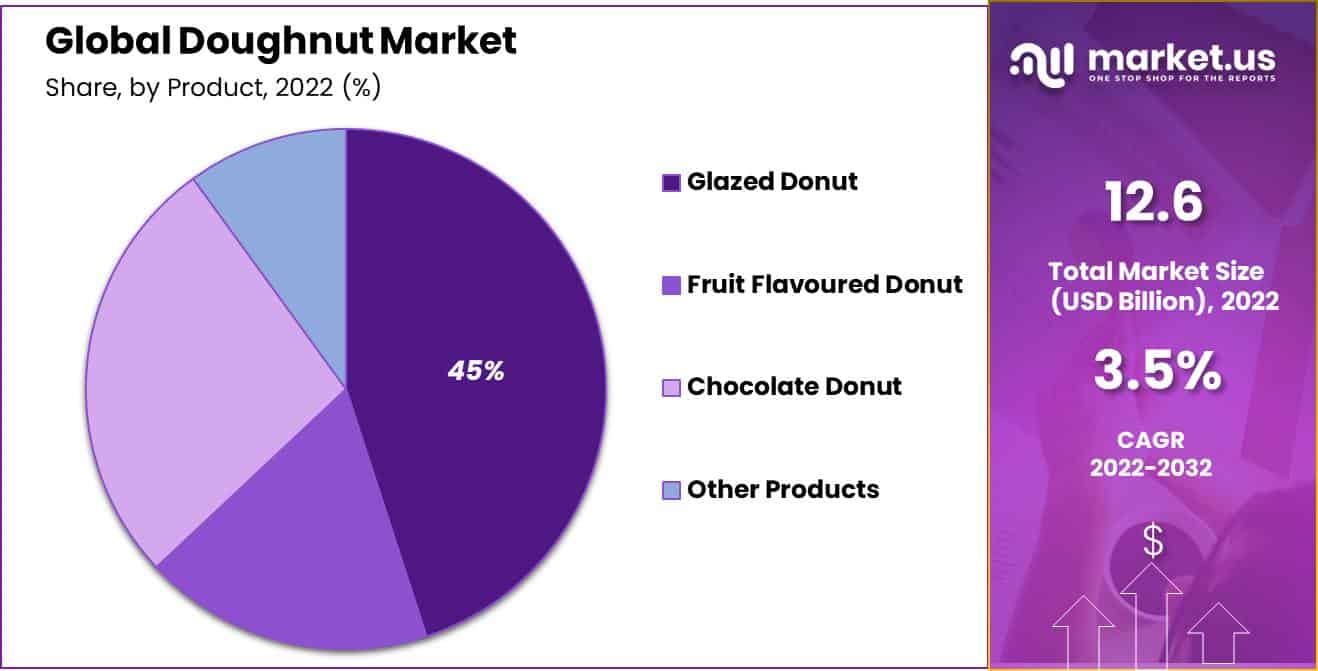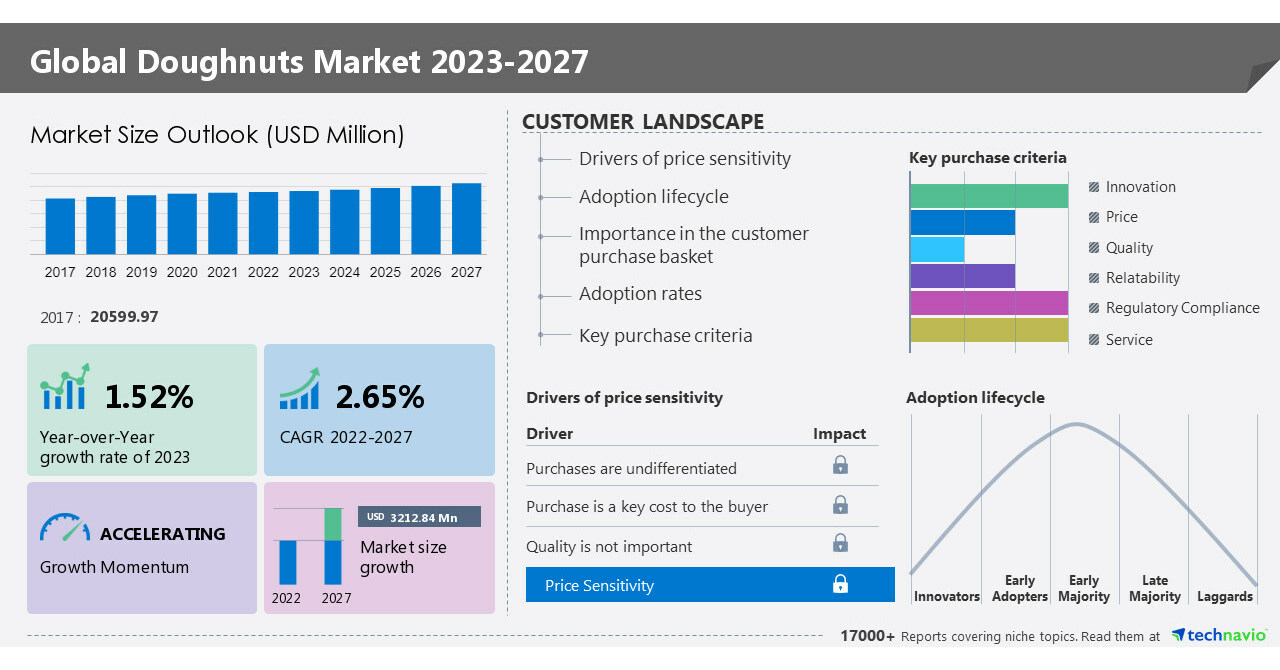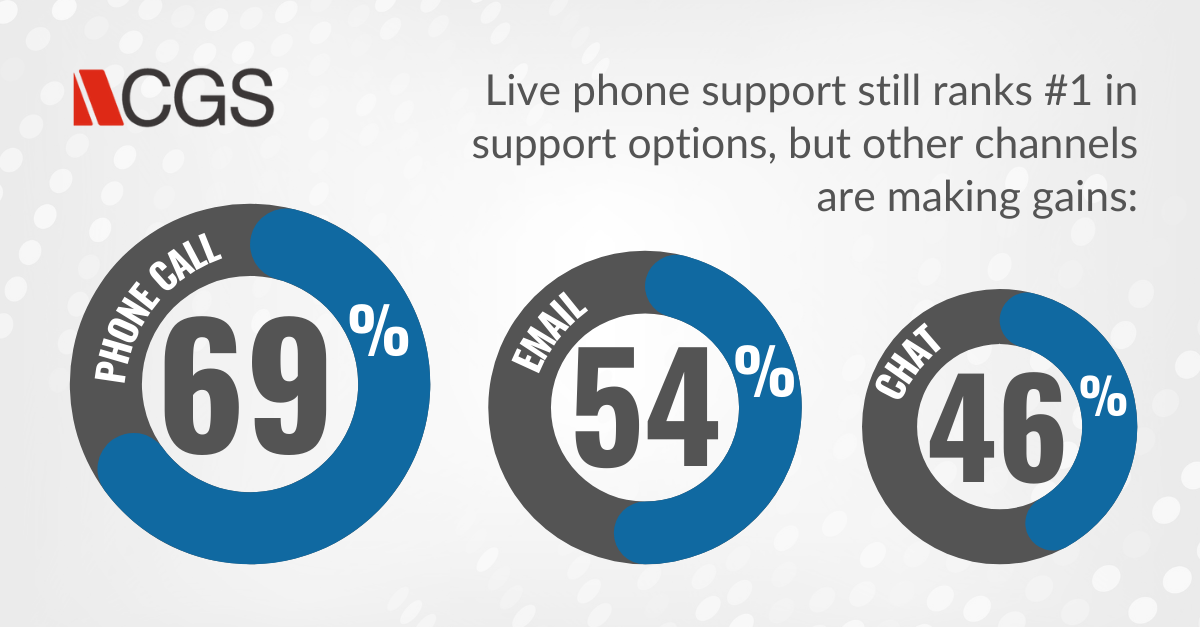The donut industry is projected to expand at a compound annual growth rate (CAGR) of 9.1% from 2023 to 2030. With over 10,000 donut shops operating nationwide, the market holds strong appeal for aspiring entrepreneurs looking to dip into this sweet business venture.

Opening your donut shop allows you to share your creative confectionary delights with your local community. Customers young and old flock to donut shops daily seeking that perfect glazed, jelly-filled, or cream-topped treat to satisfy their cravings or desire for an affordable breakfast or snack.
This guide will walk you through how to open a donut shop. Topics include sourcing materials for your donut shop business, market research to develop a donut shop menu and business plan, competitive analysis, registering your EIN, and more.
1. Conduct Donut Market Research
Market research is an important part of opening a donut shop business. Research offers insights into donut shop startup expenses as a business owner, the best social media platforms to use, price guides for donut shop sales, details on your target market, and more.

Some information you’ll learn through donut shop franchise market research includes:
- Classic cake and yeast-raised donuts lead in popularity with consumers.
- Gourmet, artisan donuts now claim a growing share of the market as customers seek premium flavor options.
- The breakfast food service sector drives robust donut sales.
- Donuts pair perfectly with hot coffee for an affordable, fast morning meal.
- Afternoon and evening purchases for snacking and dessert also contribute hefty revenue.
- Customer demographics remain broad, led by 18-33 year olds.
- While giant brands like Dunkin’ and Krispy Kreme command consumer mindshare and funds, locally-owned shops cultivate customer loyalty through superior freshness, quality ingredients, and service personalization.
- Opening in high-foot-traffic urban settings and surrounding suburbs maximizes exposure and sales potential.
- Creative flavors constantly fuel return visits as customers indulge in rotating specialty options.
The growth drivers all point to happy days ahead for the donut market. And small business owners can carve out a spot at the table and in neighborhoods across America by delivering hot, mouthwatering donuts that leave people eagerly returning for more.
2. Analyze the Competition
Understanding the competitive landscape is crucial when starting any small business, including a donut shop. This involves identifying direct and indirect competitors in your area and assessing their offerings, prices, customer service, marketing, and POS systems.

Some ways to get to know your competitors include:
- For a brick-and-mortar donut shop, begin by scouting potential locations and mapping existing donut sellers and indirect competitors like bakeries (selling candy, cupcakes, cookies, etc.), cafes, and coffee shops nearby.
- Note high-traffic areas near office buildings or other businesses where locals tend to gravitate in the mornings.
- Visit competitor shops in person multiple times at various hours and days.
- Observe their product displays, store design, and layouts, staffing levels, and purchasing processes for in-store customers.
- Eavesdrop to gauge typical customer questions and conversations.
- Upload photos of menu boards to compare donut varieties, specialty options, pricing, and combo deals.
- Sign up for competitor email lists and take note of promotions and seasonal offerings teased in messages.
- Monitor their social platforms and websites for images and messaging that perform well in terms of engagement and reflect their brand identity.
- Search online review sites to find customer pain points or common complaints that your business could improve upon.
- Chat with a few patrons to get a pulse on why they chose to visit that particular location.
- Arm yourself with key intel that you can leverage to craft an optimal donut shop tailored to fill gaps you identified in the marketplace.
Ongoing competitor analysis allows donut business owners to keep up with the latest industry innovations and changes in the markets they serve. Tweak your offerings over time to continually entice patrons by addressing their subtly shifting needs and expectations when indulging their donut cravings.
3. Costs to Start a Donut Business
When launching a donut shop, owners must budget for significant upfront start-up costs before opening their doors and beginning operations. This includes research and planning expenses, shop rent and build-out, equipment purchases, inventory and supplies, and more.
Start-Up Costs
- Research and Business Planning: $2,000 – $5,000 to assess potential locations, conduct competitor analysis, develop business and marketing plans, formulate budget forecasts/projections, consult with Small Business Association counselors, and complete all pre-launch planning phases
- Rent: $2,000 – $7,000 per month for shop rental lease in a retail space approximately 1,200 – 1,800 sq ft in size
- Shop Build-out/Renovations: $30,000 – $250,000 depending on needed changes which may include flooring, lighting, displays/fixtures, counters, sinks, plumbing, electrical, signs, aesthetic design elements, etc.
- Kitchen Equipment: $30,000 – $75,000 for industrial appliances like convection ovens, proofers, fryers, dough sheeters & dividers, custom racks & trays, mixers, and more
- Front-of-House Furnishings: $5,000 – $20,000 for display cases, counters, terminals, security systems, CCTV, point-of-sale equipment, etc.
- Packaging & Initial Inventory: $5,000 for custom boxes, food wrapping paper, bags, and food ingredients like flour, sugar, yeast, eggs, milk, etc. to begin donut production
- Licensing & Permits: $2,000 – $7,000 including food service permits, food safety certifications, fire inspections, health department approvals, local business licenses, liquor licenses for coffee
- Staff Wages: $6,000+ for hiring and training several bakers, cashiers, prep cooks, and experienced managers
- Operating Cost Capital: $15,000 cash on hand is recommended to cover operating expenses like payroll, rent, and utilities for the first 3 months
Ongoing Costs
- Cost of Goods Sold: 35%-50% of total sales should cover ingredients, packaging, replaces for damaged products
- Rent: typically $2,000+ per month retail spaces 1,200 square feet
- Payroll: $4,000 per full-time baker plus manager salaries at $50k/year and cashiers at $30k/year. Part-time staff will also be needed.
- Equipment Lease Payments: vary based on credit score/history but estimate 12-18% of total leased equipment costs
- Utilities: gas, electric, water, trash removal, etc averaging $1,000+ per month
- Shop Maintenance/Repairs: $500 per month estimated
- Accounting Software & Services: $100 – $200 per month
- Advertising/Marketing Promotions: 10-20% of total sales recommended per month through social platforms, email, partnerships, local events, and community engagement
- Insurance Premiums: $600 – $1,800 depending on the property, commercial liability, worker’s compensation, food service policy specifics
- License/Permit Renewals: $100 to $500 per certification
- Professional Services: Hiring marketing agency consultations, payroll processors, and tax accountants costing $3,000 to $10,000 per year
By planning for both hefty start-up and ongoing operational costs, new donut shop owners set themselves up for financial stability and success in their exciting, fun-filled small business venture serving up sweet treats.
4. Form a Legal Business Entity
When starting a donut business, selecting the right legal structure is key. The four main options each have distinct advantages and drawbacks to weigh.
Sole Proprietorship
A sole proprietorship provides an easy startup with few formal processes. However, the owner assumes unlimited liability for debts and obligations. Their assets can be seized in lawsuits making this a risky choice when selling perishable food products.
Partnership
Partnerships allow donut entrepreneurs to share skills, costs, and decision-making across business partners. Yet conflicts can arise on financial issues or business vision leading partners to dissolve relationships. And individual partners still assume full liability for claims against the business as a whole.
Corporation
A corporation offers the most formal structure with rigorous oversight, record-keeping requirements, and double taxation of profits. While the corporate veil protects owner liability, regulations impose heavy administrative burdens better suited to large multi-location food chains.
Limited Liability Company (LLC)
Forming a limited liability company (LLC) provides the best option when starting a small donut shop. As a distinct legal entity, an LLC shields the owner’s assets from any business debts or claims. Taxes pass through to the owner’s income similar to a partnership. Without rigorous formal processes, LLCs facilitate simpler administration for real-time strategic decision-making.
5. Register Your Business For Taxes
An Employer Identification Number (EIN) serves as a unique tax ID number for a business entity. The Internal Revenue Service (IRS) uses this to identify and properly tax businesses each year. All donut shop owners must obtain their own EIN even if operating as a sole proprietorship or partnership before hiring any employees.
Applying for an EIN is free and easy directly through the IRS website. The online EIN assistant walks owners through a short application with basic questions about the business structure and ownership. Owners simply need their social security number, address, and business name. The entire process typically takes less than 10 minutes to complete.
Donut shop owners should apply for an EIN as soon as they officially form their business structure since many legal processes require this identifier. An EIN also enables owners to set up merchant services and payment processing systems essential for ringing up delicious donut orders.
Additionally, owners must register with their state revenue or taxation department to obtain a separate tax ID number for reporting and paying sales tax. The business EIN connects with state tax IDs for streamlined tax compliance.
Though state requirements vary, most levy minimal registration fees below $100 and many forego any charge. By proactively setting up proper EIN and sales tax processes, donut entrepreneurs position themselves for smooth operations while adhering to all legal tax guidelines.
6. Setup Your Accounting
Careful financial record-keeping represents a non-negotiable best practice when launching a donut shop. Owners must implement robust accounting processes early on to track all money flowing in and out of their sweet small businesses.
Accounting Software
Using small business accounting software like QuickBooks allows owners to seamlessly integrate directly with bank accounts and credit cards for automated categorization of all transactions. The system handles invoicing, expense tracking, inventory management, payroll, and taxes. QuickBooks plans start around $20 per month with the software paying for itself.
Hire an Accountant
Hiring an accountant provides professional guidance to ensure full legal compliance and optimal profitability. A qualified accountant handles essential responsibilities like monthly reconciliations, sales tax calculations, payroll processing, asset depreciation, and strategic tax planning. Expect to invest around $200 per month for basic bookkeeping with rates rising to $3,000 for income tax preparation and auditing support.
Open a Business Bank Account
Keeping business finances strictly separate from personal banking and expenses greatly simplifies record-keeping challenges. The IRS scrutinizes the commingling of funds that conceal tax liabilities or other illegal activities. Designate a reputable bank for opening dedicated small business checking/savings accounts and/or business credit cards solely for company transactions.
Apply for a Business Bank Account
Applying for a small business credit card also helps track expenditures and builds an independent credit profile. Issuers like Capital One, Chase Bank, and American Express extend initial limits from $500 up to $100,000 depending on time in business and annual revenue.
7. Obtain Licenses and Permits
Donut entrepreneurs must complete key legal processes before unlocking the doors to customers. Find federal license information through the U.S. Small Business Administration. The SBA also offers a local search tool for state and city requirements.
Registration regulations vary between states and municipalities. However, securing a basic food service permit or license from the health department tops the list. These approvals ensure proper policies for safe food handling, storage, prep, and cooking processes.
Health inspectors will conduct periodic evaluations of the shop once it opens to guarantee continued compliance. Permits must be visibly posted in the front of the house by law.
Fire safety represents another crucial area for advanced planning. Work with local fire marshals to meet all current building codes and purchase mandated equipment like extinguishers, ventilation hoods, and alarms. Schedule necessary fire inspections to gain official sign-offs before daily frying commences. Renew equipment per stated timelines to avoid fines.
Donut founders must also get familiar with zoning guidelines if renovating or constructing a new retail space. Special permit approvals ensure compliance with proper entrances, exits, bathroom facilities, grease traps, signage, parking accommodations, etc.
And municipalities levy additional requirements to legally operate locally such as business licenses and food handler training. Renewals and fees apply annually for most credentials. Check federal, state, and local agency websites for full details.
While permit processes take time, donut shop owners who prioritize completion guarantee unencumbered openings and sustained success servicing delighted, loyal customers.
8. Get Business Insurance
Operating a donut shop without adequate business insurance exposes owners to substantial financial risks that could permanently shutter operations. Various policies safeguard the company from expensive liabilities related to property damage, customer health, and employee injuries.
For example, failing to carry property insurance means owners personally foot bills to rebuild after fires, floods, or other incidents physically damage the shop. Inventory and equipment losses easily tally $100,000+ nullifying years of hard work overnight.
Lawsuits from customers claiming food poisoning or physical accidents onsite also threaten livelihoods without liability coverage. Out-of-pocket settlements averaging $10,000 – $30,000 per incident lead many food businesses toward bankruptcy.
And worker’s compensation policies become legally required upon hiring staff. Just one workplace injury causing an employee extended medical leave or disability payout triggers devastating payroll gaps plus legal fees without this safety net.
To mitigate risks, donut shop owners should thoroughly research optimal business insurance plans. Connect with trusted providers like The Hartford to request free quotes tailored to your shop’s unique needs and budget. Key considerations include:
- Property Coverage – protects company assets like leased buildings, equipment, furnishings, inventory, and money on premises
- General Liability – covers legal fees plus settlements from 3rd party bodily injury, property damage, or advertising claims
- Business Interruption – provides compensation for income losses if unable to operate due to covered incidents
- Commercial Auto – insures company-owned vehicles transporting goods/Staff
- Cyber Liability – helps recoup costs related to data breaches, hacking, or ransomware attacks
- Worker’s Compensation – covers medical and disability expenses for employees injured on the job per state laws
Investing in adequate insurance translates directly into enterprise longevity and risk mitigation for donut shops. Owners avoid potentially catastrophic out-of-pocket bills that commonly shutter under-protected food businesses after just a few years.
9. Create an Office Space
Having a dedicated office area allows donut shop owners to handle crucial administrative, accounting, marketing, and managerial tasks in an organized, professional environment. While retail production is in the kitchen, quiet workspace offsite fuels high-level planning and operations oversight.
Home Office
A basic home office offers maximum convenience for solopreneurs with low startup costs of around $500 for a desk, computer, phone, and supplies. Schedule meetings elsewhere until establishing a larger team. Minimal financial risk gives the flexibility to upgrade as needed.
Coworking Office
For collaboration across business partners, WeWork provides turnkey coworking space complete with furnishings, utilities, WiFi, conference rooms, and office equipment. Memberships start around $350 monthly though sites limit 24/7 access or permanent signage.
Retail Office
Building out office space connected to the donut production shop centralizes workflows with managers always accessible. Expect buildout expenses from $30,000 to over $100,000 for plumbing, electrical, finishes, and access considerations. Shop design plans should account for this back area need from the outset.
Commercial Office
Independent commercial spaces lease from about $1,000 monthly for a few rooms up to entire dedicated floors costing $10,000+. Owners control customization details and branding for their company culture and needs.
10. Source Your Equipment
Launching a donut empire requires a well-equipped commercial kitchen with top-tier appliances and tools. New entrepreneurs have four main options to secure necessary materials without breaking the bank.
Buy New
Buying brand new equipment from retailers provides reliable performance backed by warranties but premium prices strain slim startup budgets. Look to restaurant supply distributors like WebstaurantStore for deep discounts of up to 50% off the list. Many offer free shipping or financing promotions.
Buy Used
Scour buy/sell groups on Facebook Marketplace and eBay to find gently used equipment at half off retail, such as mixers, sheeters, fryers, and ovens previously owned by other bakeries or restaurants. Vet items carefully check functionality, health code compliance, and repair histories to avoid inheriting headaches.
Rent
Long-term equipment rentals run $100 to $500 monthly for workhorse ovens and mixers. Flexible terms allow for rent-to-own transitions once sales stabilize. However, limited inventory means booking far in advance.
Lease
Leasing contracts provide another affordable financing pathway to acquiring essential gear. While more stringent credit requirements disqualify some startups, approvals unlock 0% short-term leases or longer payment plans from 12-36 months.
11. Establish Your Brand Assets
Crafting a compelling brand identity represents a foundational block for any new donut shop. Investing in professional assets like logos, websites, and signage fosters instant customer recognition and fuels sustainable growth.
Get a Business Phone Number
Securing a unique toll-free phone number enhanced with features like call routing, voicemail transcription, and SMS messaging streamlines communications. Providers like RingCentral make robust business phone solutions accessible for just $20 monthly.
Design a Logo
A custom logo visualizes the brand personality while color palettes, typefaces, and graphical motifs promote consistency across assets like business cards, packaging, store signage, vehicle wraps, and merch. Logo makers such as Looka develop concepts matching specified aesthetics, starting at just $20. Opt for vector files allowing infinite scaling without quality loss.
Print Business Cards
Professionally printed marketing collateral like postcards and brochures as well as branded t-shirts, hats, and drink sleeves quickly elevate exposure during local events and popup shop activations. Order convenient one-stop solutions from printers like Vistaprint with volume discounts available.
Buy a Domain Name
Purchasing a domain name that matches the donut store’s branding makes retention and recall intuitive for new customers discovering the business online. Secure domain rights for less than $15 yearly through registrars like Namecheap. Extend reach by claiming matching handles across social media platforms too.
Design a Website
For maximum customization control, owners can build out branded sites through user-friendly DIY solutions like Wix with intuitive drag-and-drop interfaces and mobile responsive design templates. Otherwise hiring professional web developers from marketplaces such as Fiverr guarantees polished results while owners focus time on crafting tasty donut deliciousness instead.
12. Join Associations and Groups
Tapping into networks of fellow donut shop owners and bakery entrepreneurs sparks collaborative idea-sharing that accelerates growth for new businesses. Local groups provide sounding boards while national associations supply playbooks of best practices.
Local Associations
Area chambers of commerce like the Brooklyn Chamber of Commerce connect small shop owners for cooperative local events and cost-effective group advertising deals. Downtown business associations also rally around issues like permitting or infrastructure projects impacting their region.
Local Meetups
Industry-specific meetups hosted on sites like Meetup offer in-person workshops, featured guest speakers, and networking mixers to brainstorm innovation or troubleshoot common obstacles. Attending annual National Donut Festivals or regional competitions also builds camaraderie and exposure.
Facebook Groups
And thousands of Facebook Groups unite geographically or across specialties. The All About Bakeries and Donut Shops group shares recipes and decorating tips. Donut shop for all. connects consumers and creators. Ultimately cultivating connections with fellow donut lovers and food entrepreneurs sparks inspiration and encouragement for the wild ride ahead.
13. How to Market a Donut Business
Implementing targeted marketing represents the key ingredient for achieving rapid, sustainable growth for any fledgling donut shop. While word-of-mouth referrals from delighted customers provide the most valuable visibility early on, layering in strategic digital and traditional campaigns turns up momentum.
Referral Marketing
Incentivizing patrons to share positive experiences across their social circles kicks referral engines into high gear. Offer modest discounts like buy three donuts, and get one free to first-timers referred by current customers. Capture contact info during checkout to fuel direct outreach across digital channels.
Digital Marketing
Digital tactics allow granular targeting and optimized spend based on performance data. Consider:
- Geo-fenced Google/Facebook ads spotlighting the donut shop’s proximity to local searchers
- Instagram influencer partnerships flaunting photogenic donut creations
- Email nurture sequences that transition new subscribers into loyal regulars
- YouTube tutorial videos or TikTok clips revealing secret menu items
- Retargeting ads across the web following site visitors who abandoned online orders
- Writing guest posts for regional “best eats” blogs to get featured reviews
- Optimizing on-page elements on the donut site to improve SEO rankings
Traditional Marketing
Though less measurable, traditional techniques still discreetly complement digital efforts:
- Loyalty punch cards incentivizing return visits to accrue rewards
- Direct mail postcards announcing new flavor launches or holiday deals
- Flyer handouts at local farmers markets, fairs, and community events
- Cross-promotions with neighboring cafes to source morning coffee rush spillover traffic
- Billboard displays along high-traffic commuter routes into the city
- Local newspaper ads in daily circulars and weekend editions
- Radio spot ads timed around morning drive programming blocks
The most effective marketing mix blends digital efficiency with traditional foot traffic drivers. Budget allocation rolls from previous period performance across channels. Consistently assess and optimize tactics aimed toward measurable business growth milestones.
14. Focus on the Customer
Delivering exceptional customer service represents the keystone that elevates great donut shops into community icons and household names. Satisfied patrons not only evolve into loyal regulars, they actively refer family and friends seeking the warm hospitality and melt-in-your-mouth tastes they experienced.

Just a few stellar reviews shared across social circles or positive word-of-mouth buzz within neighborhoods can drive exponential referral traffic and sales growth month-over-month. Experiences leave indelible impressions. The burst of nostalgia when that first bite evokes childhood memories or the smile builds enduring emotional connections.
Even simple gestures like friendly smiles, using customer names, thoughtful substitutions if a desired item sold out, custom creation requests, or free extra toppings show patrons their happiness matters. Consistency builds trust that the donut shop always delivers on providing a positive experience.
In other food sectors, innovation trumps all. But for donuts, evoking those feelings of comforting familiarity and small indulgences that customers crave makes all the difference between mediocre and legendary shops. By putting customer service on par with quality ingredients, owners can turn donut lovers into brand devotees.
